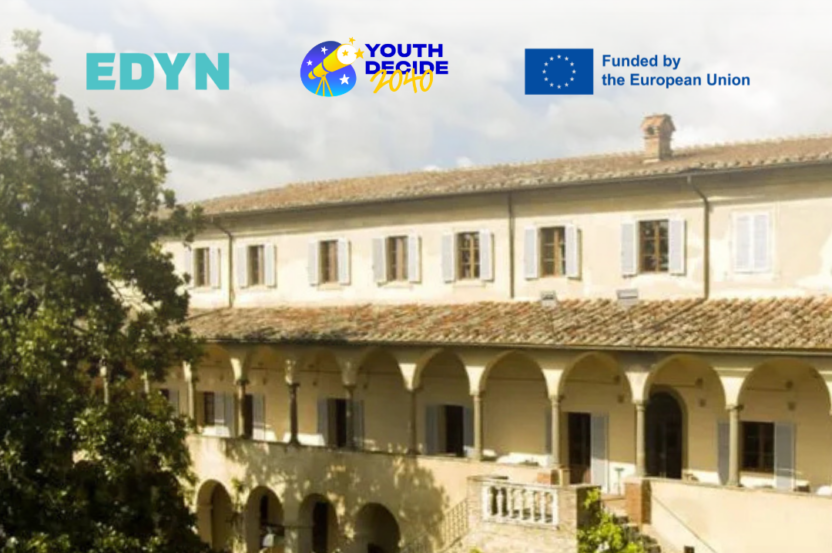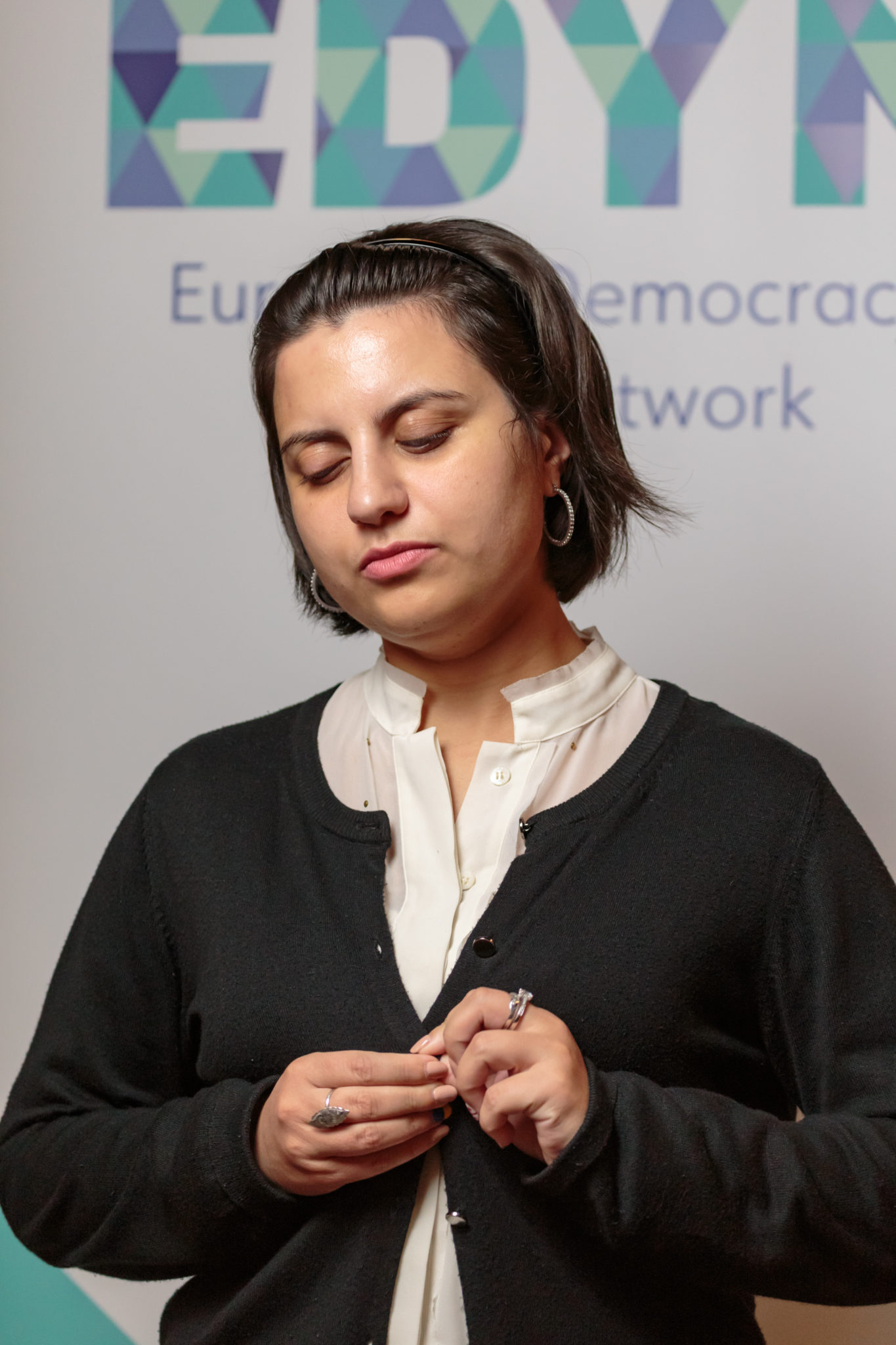When being selected for a job, awarded a grant, enrolled at a university, or a project, we believe the choice should have been obvious to the selection panel. However, when rejected, we often start questioning the committee’s decisions and wondering what criteria we did not fit into, and how those decisions were made. In this blog, I will discuss exactly: how the applicant selection process looks from the perspective of someone making selection decisions. Here, I would note that I have been a member of selection panels for different projects, ranging from selecting high school girls for a summer camp to the appointment of the Deputy Head of the Disability Rights Department at Georgia’s Ombudsman’s Office to selecting Georgia’s Youth Representative to the United Nations who would replace me, to grant awards of $130,000. I have been doing this for years, both individually (when I alone would select a certain amount of applicants) and collectively (when the applicant was selected based on an average of the points given by two or more committee members). At first, I thought it would be straightforward, as I would not be giving anyone any subjective favors and would just be making decisions based on applicants’ merits and given dry criteria. However, I have encountered a few difficult dilemmas, which will be described here. Well, first of all, selecting someone for a civic engagement project is not hard science and math, where you just evaluate someone’s diploma or how they answered multiple-choice questions.
Merit or motivation? Everybody wants to have already skilled, capable, motivated, broad-minded participants who have to contribute a lot, are thinkers, doers, and at the same time committed and ready to learn from our project. However, people are not perfect. After all, this is exactly why we need non-formal education, volunteering, and other civic engagement projects and exchange programs. Experienced participants may make our work pleasant through the high quality of discussion they engage in and the strong outputs they provide. However, overqualified people may also be disinterested in our activities, may become bored easily, and skip planned sessions. On the other hand, selecting only inexperienced attendees, who are shy and are not aware of how to act at our events, may also discourage them from striving for the betterment, as they will not have a chance to observe higher standards.
We also often have to compromise the qualification of the selected participants to ensure diversity. A person’s level of skills, knowledge, even values, and attitudes are often conditioned by various external advantages and disadvantages that do not depend on them and which they have been facing in life besides their will. NGO projects aim to improve access to resources and skills exactly amongst the most marginalized, to empower and equip, and to ensure a level playing field for all. Yet some level of readiness still has to be present. If a person feels that it was too easy to get in, they may be less appreciative of the opportunity given, while more qualified, yet less disadvantaged may get a sense of unfairness if they find that others were out of competition. Therefore, a wise balance has to be struck.
Searching for authenticity: It may as well happen that an applicant is great at writing and even speaking at the interview (especially those who have applied for many projects in their life. They often know how to go around uncomfortable questions), but when it comes to implementation, not so much. With only written applications, it is even easier to fake, as someone may just write on your behalf. Yes, we as evaluators are looking for clues, such as when very generic phrases like “I want to empower others, share my experience, be useful, make new friends, learn about other cultures/countries” are being used. Sometimes you can sense that large portions of that lengthy text are copied from one’s previous applications or outside sources. But there are often grey areas that keep the selection panelists wondering, so well they are written. At the same time, there are people who are not so skilled in making themselves look so great on paper but may be awesome at doing. At the interviews, I always try to get to the very root of why a person engages in a given field. What is his/her life story that makes the issue so dear to his/her heart?
Can a person evaluate everyone with the same strictness? Of course, we have written criteria that we follow. However, as we are human, it still may vary how many points we will give to different candidates for a similar quality of response. For instance, at first, we may score more strictly, but then notice that other applications are not better. We may become more generous or the other way around: give better grades to the first applications, but observing that the quality improves, become pickier. Of course, we go back to the previous applications to review and sometimes edit already given scores, but it is not possible to hold all 40 applications in mind at the same time to compare them all against each other (this is why, after all, we have criteria to evaluate each application separately, not in relation to others).
Finally, too often there are many more good applicants than we can take in, so we are forced to turn them down on almost random grounds, such as spelling errors which they may have corrected using spellcheck software. Reluctance to do so may be interpreted as the applicant’s will to be efficient with the application and, thus, unwilling to invest much time in the project either, while this software may simply be inaccessible for a given applicant (for instance, I do not know how to use it, especially since many software is not blind-friendly). But if the evaluator does not know these details, he/she will be unable to take them into consideration.
All of the above-described, as well as many more dilemmas not mentioned here, are the reasons why there is a portion of random chance in almost any selection process outcome. It may as well happen that some better candidates remain out while others get selected. Therefore, the fact that we should have been selected is not the only fair choice and as obvious as it may seem to us. This is exactly why, if rejected, we should not be too hard on ourselves. It is more important to apply consistently than putting all efforts into making one cover letter the best. We should keep trying and applying for different programs and projects to get into at least a few of them. If we are not really interested in participating, it is better not to apply and not take place from someone really willing to take part. Once selected, we shall be aware that many people were rejected and thus should really appreciate and take advantage of an opportunity given to us.We still have to remember that though there is some subjectivity to any selection process, there are objective criteria we will be evaluated against, therefore the luck of being selected will not come out of nowhere, unless we keep trying and practicing our writing, speaking, and self-presentation skills.




